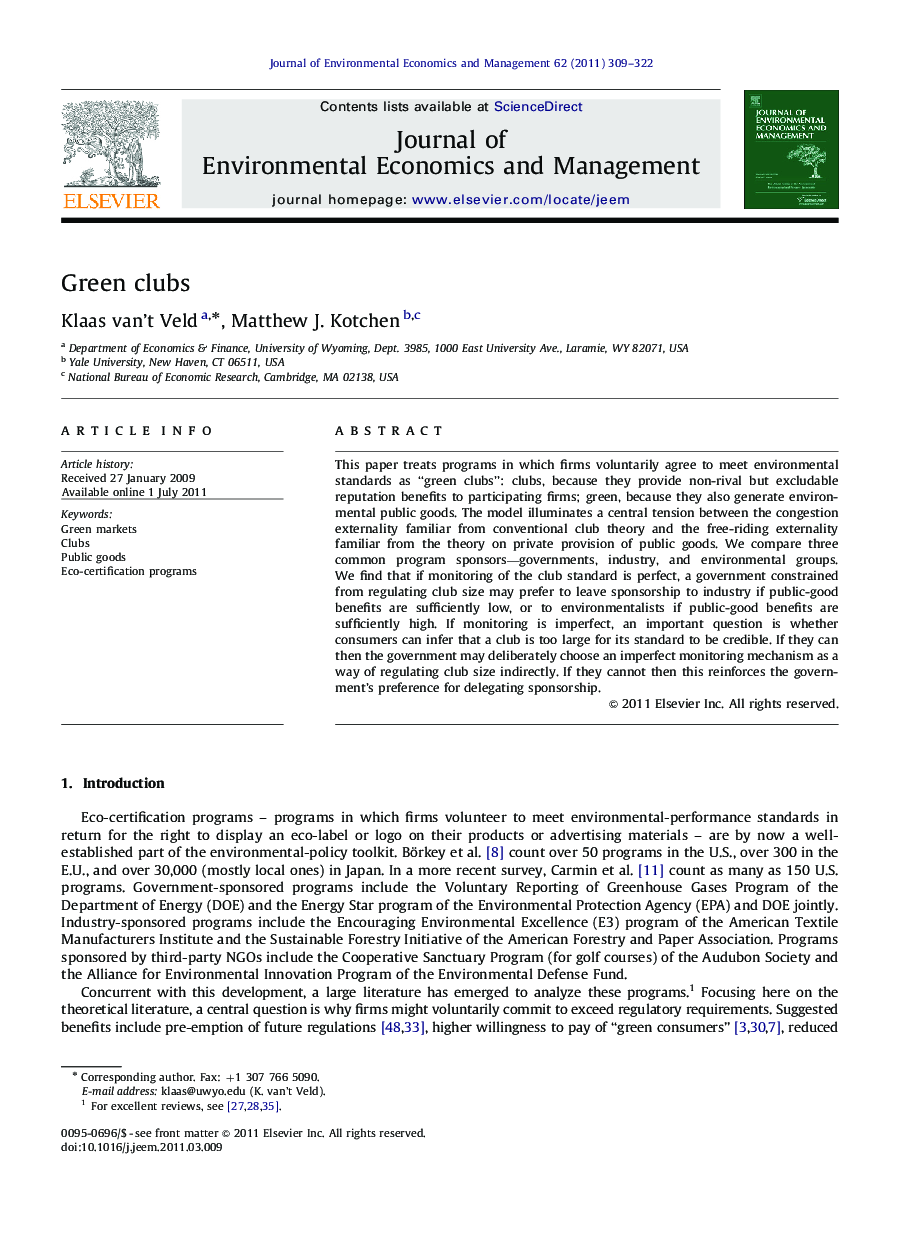| کد مقاله | کد نشریه | سال انتشار | مقاله انگلیسی | نسخه تمام متن |
|---|---|---|---|---|
| 959031 | 929116 | 2011 | 14 صفحه PDF | دانلود رایگان |

This paper treats programs in which firms voluntarily agree to meet environmental standards as “green clubs”: clubs, because they provide non-rival but excludable reputation benefits to participating firms; green, because they also generate environmental public goods. The model illuminates a central tension between the congestion externality familiar from conventional club theory and the free-riding externality familiar from the theory on private provision of public goods. We compare three common program sponsors—governments, industry, and environmental groups. We find that if monitoring of the club standard is perfect, a government constrained from regulating club size may prefer to leave sponsorship to industry if public-good benefits are sufficiently low, or to environmentalists if public-good benefits are sufficiently high. If monitoring is imperfect, an important question is whether consumers can infer that a club is too large for its standard to be credible. If they can then the government may deliberately choose an imperfect monitoring mechanism as a way of regulating club size indirectly. If they cannot then this reinforces the government's preference for delegating sponsorship.
► Voluntary eco-certification programs can be usefully modeled as “green” clubs.
► Green-club size is affected by a congestion externality and a free-riding externality.
► Governments may prefer to leave club sponsorship up to industry or environmentalists.
► Government-sponsored clubs may deliberately monitor their members imperfectly.
Journal: Journal of Environmental Economics and Management - Volume 62, Issue 3, November 2011, Pages 309–322